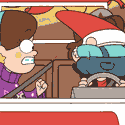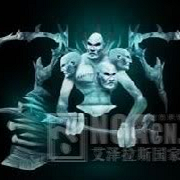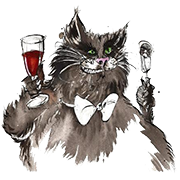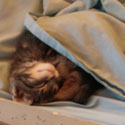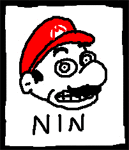|
No Mods No Masters posted:Also in the book everyone ahistorically acts like it's wildly weird to eat birds in japan, so the servants are kinda just like "maybe he is a goblin who likes eating rotten things IDK" This is actually largely accurate. They were relatively lax about a lot of things to do with Buddhism, but meat wasn't commonly eaten by the Japanese until the 19th century. Rich people did occasionally have boar or deer from hunting, and sometimes beef or chicken too, but it was rare. I don't think they would have thought "nasty this guy is eating a BIRD?!" but it wasn't common for many people.
|
|
|
|

|
| # ? May 23, 2024 12:41 |
|
Jamwad Hilder posted:This is actually largely accurate. They were relatively lax about a lot of things to do with Buddhism, but meat wasn't commonly eaten by the Japanese until the 19th century. Rich people did occasionally have boar or deer from hunting, and sometimes beef or chicken too, but it was rare. I don't think they would have thought "nasty this guy is eating a BIRD?!" but it wasn't common for many people. Then what was the point of giving him a dead pheasant as a gift?
|
|
|
|
Jamwad Hilder posted:This is actually largely accurate. They were relatively lax about a lot of things to do with Buddhism, but meat wasn't commonly eaten by the Japanese until the 19th century. Rich people did occasionally have boar or deer from hunting, and sometimes beef or chicken too, but it was rare. I don't think they would have thought "nasty this guy is eating a BIRD?!" but it wasn't common for many people. I dunno, this is my source: https://www.columbia.edu/~hds2/learning/Learning_from_shogun_txt.pdf p118 (a very cool little companion book I recommend to other nerds btw) quote:We must also stress that, except among the Buddhist clergy, the prohibition against eating meat referred only to four-legged animals. It obviously never applied to fish, which have always provided the overwhelming bulk of animal protein in the Japanese diet, but neither did it apply to birds. Indeed, fowl ranked only slightly below fish as the most prized food in the era of Shogun. Japanese of all classes, including the Kyoto aristocracy, have always been fond of bird flesh and it seems safe to say that almost no winged species was safe from being served up on the tables of traditional Japan. Pheasant in particular was considered a great delicacy, and Mariko’s reluctance to sample such a representative dish as “small pheasant, cut into tiny pieces, barbecued over charcoal with a sweet soya sauce” (p. 688) can be explained only as a peculiar personal preference: it was certainly not a national trait. Even European visitors were astonished by the variety of fowl consumed by the Japanese, although here we find the same qualification as with fourlegged animals: as an early observer noted, “they never eat hens, because, as it seems to me. they breed them and they never eat anything they breed” (Cooper, They Came to Japan, p. 191). It was less the eating of meat than the raising of animals to be eaten which most clearly set the Europeans apart from the Japanese. No Mods No Masters fucked around with this message at 20:21 on Mar 19, 2024 |
|
|
|
counterfeitsaint posted:Then what was the point of giving him a dead pheasant as a gift? In the book it's clear that Toranaga knows Blackthorne isn't Buddhist and that he eats meat. quote:There he collected his falconers and three hawks and hunted for twenty ri. By noon he had bagged three pheasants, two large woodcock, a hare, and a brace of quail. He sent one pheasant and the hare to the Anjin-san the rest to the fortress. Some of his samurai were not Buddhists and he was tolerant of their eating habits. McNally fucked around with this message at 20:33 on Mar 19, 2024 |
|
|
hailthefish posted:In the book it's more explicit that he was busy and completely forgot it was there and was left hanging way longer than he intended. Yeah I was confused by the show having not read the book. We always hung our wild game but only for a day or two, only when it was cold, and only after gutting. Never to the point there was any rotting. Also wasn't it pheasant that he served at the dinner that everybody refused to eat but also the gardener took down the pheasant because it was rotting and got killed for it? I'm confused about that.
|
|
|
|
|
counterfeitsaint posted:Then what was the point of giving him a dead pheasant as a gift? The way I took it they were being nice to him. Realistically they'd eat it too, the weird part of the book/show is having people be revolted by the idea of eating birds - they wouldn't have been, but they knew he'd like it a lot more.
|
|
|
|
D-Pad posted:Yeah I was confused by the show having not read the book. We always hung our wild game but only for a day or two, only when it was cold, and only after gutting. Never to the point there was any rotting. Also wasn't it pheasant that he served at the dinner that everybody refused to eat but also the gardener took down the pheasant because it was rotting and got killed for it? I'm confused about that. It was rabbit in the stew.
|
|
|
|
the point of the pheasant was for blackthorne to make a sweet bird feather cloak, like yabu has.
|
|
|
|
Uh so, what was Blackthorne actually trying to accomplish by leaving the pheasant to rot.
|
|
|
|
MiddleOne posted:Uh so, what was Blackthorne actually trying to accomplish by leaving the pheasant to rot. It makes the meat a lot more tender sitting out a little bit.
|
|
|
|
You know, like the goon that tried dry aging the hitchhiker they killed.
|
|
|
|
Macdeo Lurjtux posted:You know, like the goon that tried dry aging the hitchhiker they killed. Please expand
|
|
|
|
If there's one thing I love in TV shows it's long, tense conversations where the characters are getting steadily more drunk over time. 10/10
|
|
|
|
Macdeo Lurjtux posted:You know, like the goon that tried dry aging the hitchhiker they killed. I uh... how did you get that from that?
|
|
|
|
Is it really so hard to believe that the Japanese nobility were appalled by an English sailor's idea of home cooking?
|
|
|
|
One other thing that was weird to me was the snow this episode. In the beginning of the show (and real life) Blackthorne/William Adams arrives in Japan in March or April 1600. It should be summer right now. Without spoiling the things to come, the entire story should be finished before winter in the same year. So what's with the snow.
|
|
|
|
Show loving rules. All bangers, no brakes.
|
|
|
|
Steve Yun posted:Please expand Old forum post, goon tried hanging a haunch of beef in his garage to dry age it without actually knowing how to. After two months he posts in the dry age thread with pics asking if he can just cut off the green parts. Everyone pounced on him for being an absolute idiot and asked why a launch of beef has a sock on it.
|
|
|
|
All these trailing robes around open oil lamps makes me nervous.
|
|
|
|
CatstropheWaitress posted:Show loving rules. All bangers, no brakes.
|
|
|
|
stev posted:If there's one thing I love in TV shows it's long, tense conversations where the characters are getting steadily more drunk over time. 10/10 Because I hate myself, I've been watching YouTube reactions to this episode, and the one funny bit is how so many reactors initially watch that scene as comedy...until it's not. Overall, the pacing of this episode was really well done. The early scene of the regents talking and getting nowhere was edited really nicely.
|
|
|
|
It’s brilliant that it showed us the discussion over regents because it makes the situation very clear: there’s not some atavistic / irrational deference to bureaucracy going on, it’s just that nobody wants to let anyone else’s protégé in as the fifth regent because that would upset the balance of power
|
|
|
|
|
I love that Yabushige character. Total used car salesman slimeball energy. BTW, Can any goons give a sense of the quality of the translation? I figure the script is the script but are there nuances to the language that the subtitles don't pick up?
|
|
|
|
MikeC posted:I love that Yabushige character. Total used car salesman slimeball energy. I'm no expert in feudal Japanese, but the translations are pretty accurate. They are talking in a Japanese equivalent of how people talk in Jane Austen novels. They are also using a lot of polite titles and phrasing depending on rank, which is hard to translate in English. Mariko does a bit of that with "He humbly asks you..." and "He politely says..." And Yabushige has a definite tough-guy way of speaking when he's being a brute, like proto-yakuza talk, which is cute when he tries to code switch to super-polite speech when addressing Toranaga. Edit; One thing they are doing a really good job of showing is how Mariko will sometimes massage a translation, but we get to see in subtitles what the person said before she translates. Those subtitles are accurate. Nice Tuckpointing! fucked around with this message at 04:31 on Mar 20, 2024 |
|
|
|
As a resident in the San Fernando Valley area of Los Angeles I was glad to see liquefaction in action, something I've heard a great deal about. And by glad I mean loving horrified.
|
|
|
|
I love that this show is able to properly show rather than merely convey the really epic stuff. I love all the dialogue and intrigue and mise en scene, and having that stuff punctuated by these moments of immense scale or impact really sells the "oh gently caress" factor of those moments.
|
|
|
|
|
One thing though, I was a touch disappointed that Anjin didn't go out and look at the post where two arrows were embedded in the exact same spot and is so blown away that he orders nobody to ever take down the post or remove the arrows. But I guess that would kind of break the mood of Buntaro being a shitbag. But he's a deadly dangerous samurai for sure
|
|
|
|
Nice Tuckpointing! posted:And Yabushige has a definite tough-guy way of speaking when he's being a brute, like proto-yakuza talk, which is cute when he tries to code switch to super-polite speech when addressing Toranaga. It is especially funny when it is clear to Yabushige that Toronaga sees right through his act.....but he has no choice if he wants to keep his head so he does his signature sigh.... and then proceeds to doubles down peering up every once in a while to see if he earned just a bit more rope.
|
|
|
|
https://x.com/ivan_hernandez/status/1768384901621985284?s=46
|
|
|
|
I thought the pheasant was gonna wind up as a joke about English food. 
|
|
|
|
MikeC posted:It is especially funny when it is clear to Yabushige that Toronaga sees right through his act.....but he has no choice if he wants to keep his head so he does his signature sigh.... and then proceeds to doubles down peering up every once in a while to see if he earned just a bit more rope. I would have to rewatch a scene or two, but I am pretty sure he slips up a little from time to time, such as instead of saying, "I believe, lord, that is not the case," he just says the equivalent of, "Naw," and then rambles some more to make up for it. Also, in the scene he has with Ishido in episode 2, he is much more chummy in his talk than he is with Toranaga.
|
|
|
|
kiimo posted:One thing though, I was a touch disappointed that Anjin didn't go out and look at the post where two arrows were embedded in the exact same spot and is so blown away that he orders nobody to ever take down the post or remove the arrows. I take his look as more like, 'Well gently caress. I went and confronted this guy who could have easily killed me even while shitfaced and only the culture I am so disdainful of prevented him from doing so'
|
|
|
|
Justin Credible posted:I take his look as more like, 'Well gently caress. I went and confronted this guy who could have easily killed me even while shitfaced and only the culture I am so disdainful of prevented him from doing so' The order to keep the arrows in the post is from the book. It was Blackthrone trying to placate an increasingly belligerent Buntaro, and it works for a while. But I think the change worked well for the tone of the scene in the show. If you've ever lived with a mean drunk, that whole scene was a straight-up horror film.
|
|
|
|
PostNouveau posted:I thought the pheasant was gonna wind up as a joke about English food. I thought it kind of was, along with everyone rejecting his stew (and his surprisingly enthused reaction to eating natto the previous week). It's just that the punchline to Blackthorne's lovely palate ends with someone dying. 
|
|
|
|
The haunted stink pheasant was definitely played for comedy I think, as setup for when the rug is yanked out from under Blackthorne and the audience and we see that there are consequences to a Lord giving orders.
Scoss fucked around with this message at 05:29 on Mar 20, 2024 |
|
|
|
I thought the reveal of Mariko's family name was well done. Having read up on the period recently, I recognized the name from actual history so it landed well. It was a real Oh poo poo moment, and really did explain a lot of the subtext that we've seen in her relationships.
|
|
|
|
Nice Tuckpointing! posted:I'm no expert in feudal Japanese, but the translations are pretty accurate. They are talking in a Japanese equivalent of how people talk in Jane Austen novels. They are also using a lot of polite titles and phrasing depending on rank, which is hard to translate in English. Mariko does a bit of that with "He humbly asks you..." and "He politely says..." I noticed some phrases that I'm familiar with as having an "ai" sound in modern Japanese instead having an "ari" sound in the show, with an R consonant in the middle that completely breaks my comprehension. I spoke said phrase out loud to myself (I can't recall it at the moment) and it seemed like it would be the natural evolution of that word to drop the R the sound, but at the same time I was wondering if I was just imagining things. It's strange to me that I'm actually picking up so few phrases, given that I took 3 years of Japanese in High School and went on an exchange. Granted that was 20 years ago, but I can usually watch Japanese content and get SOMETHING out of it. I'm guessing they must be using the Japanese equivalent of Ye Olde English, but I would be curious to know the actual etymological basis of this era of Japanese, as I'm more or less clueless on the historical evolution of the language.
|
|
|
|
I'm consistently impressed with the special effects in this show. They're rarely obtrusive, even in what I imagine could be some tricky shots to composite. The landslide looked surprisingly realistic, for instance.Jamwad Hilder posted:One other thing that was weird to me was the snow this episode. In the beginning of the show (and real life) Blackthorne/William Adams arrives in Japan in March or April 1600. It should be summer right now. Without spoiling the things to come, the entire story should be finished before winter in the same year. So what's with the snow. In Japan, the early 17th c. was the beginning of a particularly cold and wet period of the Little Ice Age. So that could be just lingering winter weather in late spring.
|
|
|
|
https://twitter.com/sreekyshooter/status/1770289091105407244?s=46&t=lCvVY8H_4CIbKFtN648pxg
|
|
|
|

|
| # ? May 23, 2024 12:41 |
|
XYZAB posted:I noticed some phrases that I'm familiar with as having an "ai" sound in modern Japanese instead having an "ari" sound in the show, with an R consonant in the middle that completely breaks my comprehension. I spoke said phrase out loud to myself (I can't recall it at the moment) and it seemed like it would be the natural evolution of that word to drop the R the sound, but at the same time I was wondering if I was just imagining things. It's strange to me that I'm actually picking up so few phrases, given that I took 3 years of Japanese in High School and went on an exchange. Granted that was 20 years ago, but I can usually watch Japanese content and get SOMETHING out of it. I'm guessing they must be using the Japanese equivalent of Ye Olde English, but I would be curious to know the actual etymological basis of this era of Japanese, as I'm more or less clueless on the historical evolution of the language. Yeah, that's the point where it goes beyond my knowledge as well. The "gozarimasuru" in the gift exchange scene has today become "gozaimasu" (with the "u" unspoken unless you really want to hammer a point home). "-san" as a polite suffix was also not yet a thing, hence all the "-sama" everywhere. Fun sidenote, in noh theater, they end sentences with "de soro" a lot, which has evolved into today's "desu." Their word for thank you is different because "arigato" as a set expression based on the word for gratitude only became a thing centuries later. Japanese underwent some major changes since 1600. Namely the Edo period standardized Kanto dialect as a default version of the language (kinda like how the Florentine dialect is now standard Italian.) And of course the influx of non-Chinese loan words in the 19th century -- German, Dutch, English, French. Which makes me wonder about the fudge room being done at times. They say "Portugal" the same way modern Japanese does. But Father Alvito at the beginning of Ep. 2 just put some stank on the Portuguese word for England, which makes sense considering it was an unknown land in Japan at the time, but now I wonder when "Egirisu" became the standard and not "Eikoku." (Edit; those are the words for Britain/UK depending on era. England is "Ingurando", so Alvito wasn't too far off from today.) The stuff that puts a wall in front of my listening is all the old idioms and metaphors they throw out that I don't know. "Pulling a gourd from a horse", Toranaga's speech about falcons in this episode seemed to have some too. Might need to rewatch that again. They wrote the script in English, translated it into modern Japanese, then had that rewritten by an expert in 1600s Japanese. This show knows their stuff. Nice Tuckpointing! fucked around with this message at 08:19 on Mar 20, 2024 |
|
|





